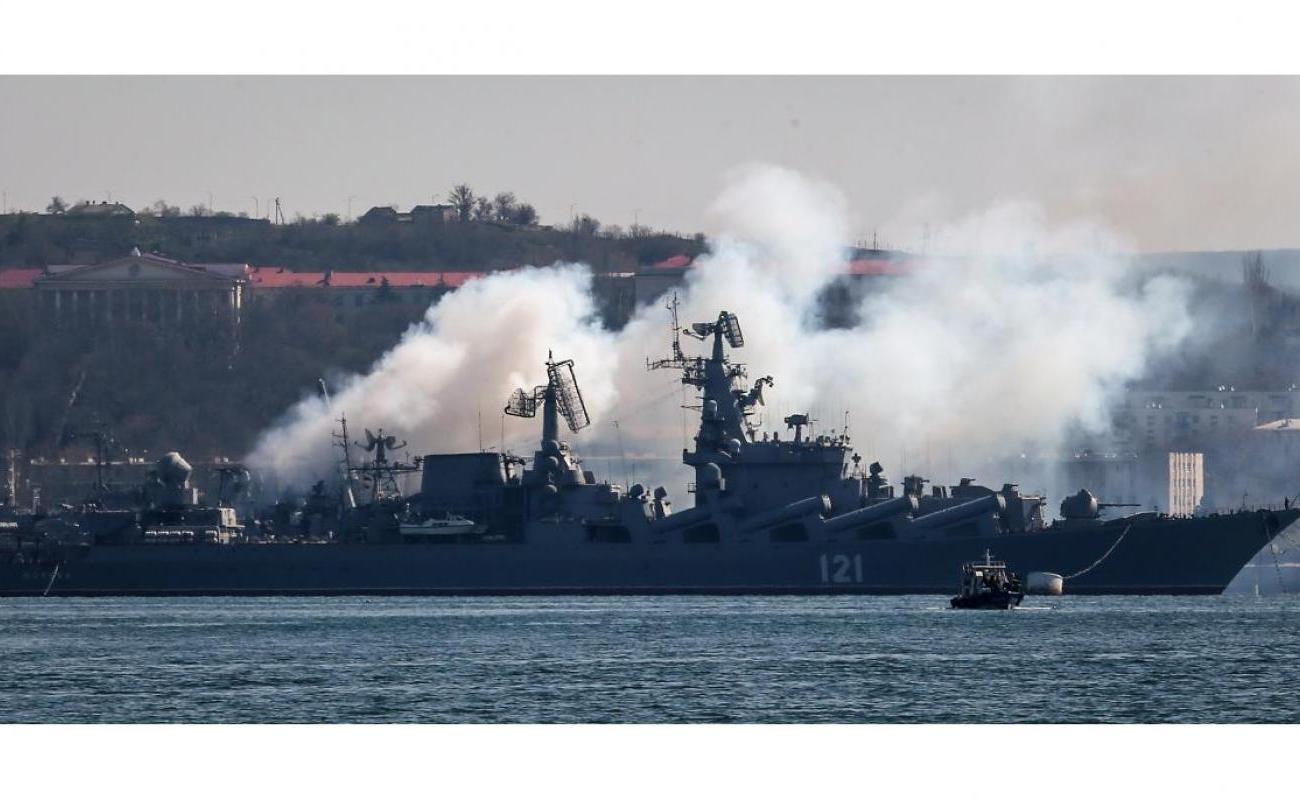“I am sure he isn’t the only one who died.”
Family members of sailors who served onboard the Moskva are demanding answers as the ministry has sought to suppress information about what happened to the ship or its estimated 510-strong crew.
The total number of dead, wounded and missing remains a state secret. Tsyvov’s death, which has not been previously reported, is only the second confirmed from the warship. Another three families have gone public saying they cannot find their sons who were serving onboard.
Media reports suggest the number of casualties from the attack will be far higher, and the efforts to suppress information about the deaths have raised comparisons with the Kursk submarine incident that left 118 sailors dead and struck a blow to the prestige of a young President Vladimir Putin in 2000.
“This regime has never been very transparent about casualties,” said Alexander Gabuev, a senior fellow at the Carnegie Moscow Center, pointing to Russia’s military operations in Ukraine and Syria or the investigations into attacks at Beslan and the Dubrovka theatre. “A lot of this has precedence and it’s not something very new or very surprising.”
New information on the young sailors who died will also renew scrutiny about the Russian government’s use of conscripts in battle, something Putin had explicitly denied was the case early in the war.
The defence ministry was forced to admit it had deployed conscripts after some were captured in Ukraine in the first weeks of the war. It claimed it would no longer use them.
But several parents of Moskva crew members have told the Guardian and others that their sons onboard the ship were indeed conscripts and not professional soldiers on contract.
Photos and a video purporting to show the Moskva shortly before it sank emerged on Monday, nearly four days after it sank. The images showed that its lifeboats had been deployed, indicating an order was likely given to abandon ship.
Families of several crew members have said they managed to locate their family members alive.
Eskender Djeparov said he recognised his brother Akbar in a video released by the defence ministry that showed sailors from the Moskva meeting a top admiral in Sevastopol after the ship sank.
“We were very happy when we saw him in the video of the crew in Sevastopol,” Djeparov said. “The day after the tragedy, he called our mother and said that he is alive and well. That she shouldn’t worry about him. He hasn’t told us what happened, he doesn’t say much. He calls us from different numbers. He is a conscript, he started last July. He definitely never signed a contract.”
A family member of crew member Evgeny Grinberg said via online messenger that “his condition is fine and I do not intend to divulge military secrets”.
“It’s fraught with consequences,” wrote Valery Grinburg of Monchegorsk, near Murmansk. “And Evgeny did not say anything anyway.”
But many others have been less lucky. Shkrebets was one of the first to go public demanding answers about why his son was sent to war. “They said that the entire crew was evacuated. It’s a lie! A cruel and cynical lie!”
His wife, Irina, told the independent Russian website the Insider that they had seen about 200 injured sailors at a military hospital in Crimea while looking for their son. The total crew of the Moskva was estimated at just over 500.
“We looked at every burnt kid,” she told the Insider. “I can’t tell you how hard it was, but I couldn’t find mine. There were only 200 people, and there were more than 500 onboard the cruiser. Where were the others? We looked in Krasnodar, and everywhere else, we called every place, but we couldn’t find him.”
Other families had reached out to the Shkrebets hoping to find more information.
“We were contacted by three families from Yalta, Alupka and St Petersburg, whose children are also missing, also conscripts,” her husband wrote on Monday, adding they had submitted a written request for more information at the local enlistment office.
“We need written answers to our questions about finding our children, not text messages with pictures and prayers,” he said.
Other parents were clearly more fearful of speaking out. Ulyana Tarasova of St Petersburg wrote online: “My son, Tarasov Mark, is missing in action aboard the cruiser Moskva.”
Hours later, her post was gone.
Others who spoke with Russian media have asked for anonymity for fear of facing reprisals from the government.
The mother of another sailor told the Novaya Gazeta Europe website that three missiles had struck the Moskva. She said about 40 people had died, several were missing, and “there are many wounded”.

